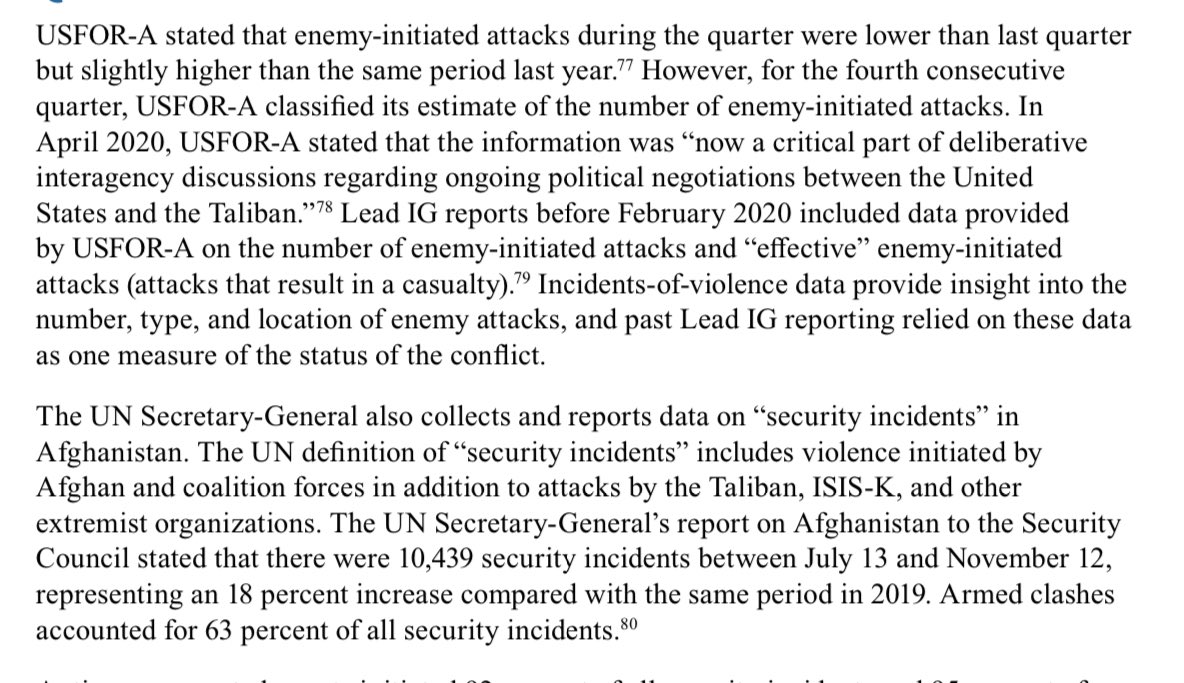
Highlights from the DoD IG’s latest quarterly report on Afghanistan on Taliban violence, al-Qaida & ISIS, and Pakistan: 1/n media.defense.gov/2021/Feb/17/20…
Taliban increased violence in reporting period; intra-Afghan talks are unlikely to result in ceasefire or reduction in violence in 2021. 

Enemy-initiated attacks in reporting quarter were higher than the same quarter year before; UN SG report found 10439 incidents between July and September 2020, which was an 18% increase on same period year before. 

Civilians harmed in reporting quarter remained very high — 810 killed, 1776 injured — but the number was lower than civilian harm level in same quarter last year, which was 1058 killed, 1959 injured. 

The Taliban maintained ties to al-Qaida and AQIS: some al-Qaida fighters were integrated in Taliban forces and command structure but they played a marginal role in the insurgency. 

AQ+AQIS total is fewer than 200; al-Qaida and AQIS remain willing to abide by Taliban directives for preserving safe haven. 

ISIS is attempting to rebuild; while there are no financial relationships between the Taliban and ISIS, in major ISIS areas, loyalties between Taliban and ISIS are fluid. 

Pakistan foreign minister Qureshi has expressed support for peace process but said Taliban alone are not responsible for ceasefire. 

There was a video of Afghan Taliban deputy Mullah Baradar on social media showing him meeting Taliban rank-and-file in Karachi. 

• • •
Missing some Tweet in this thread? You can try to
force a refresh




